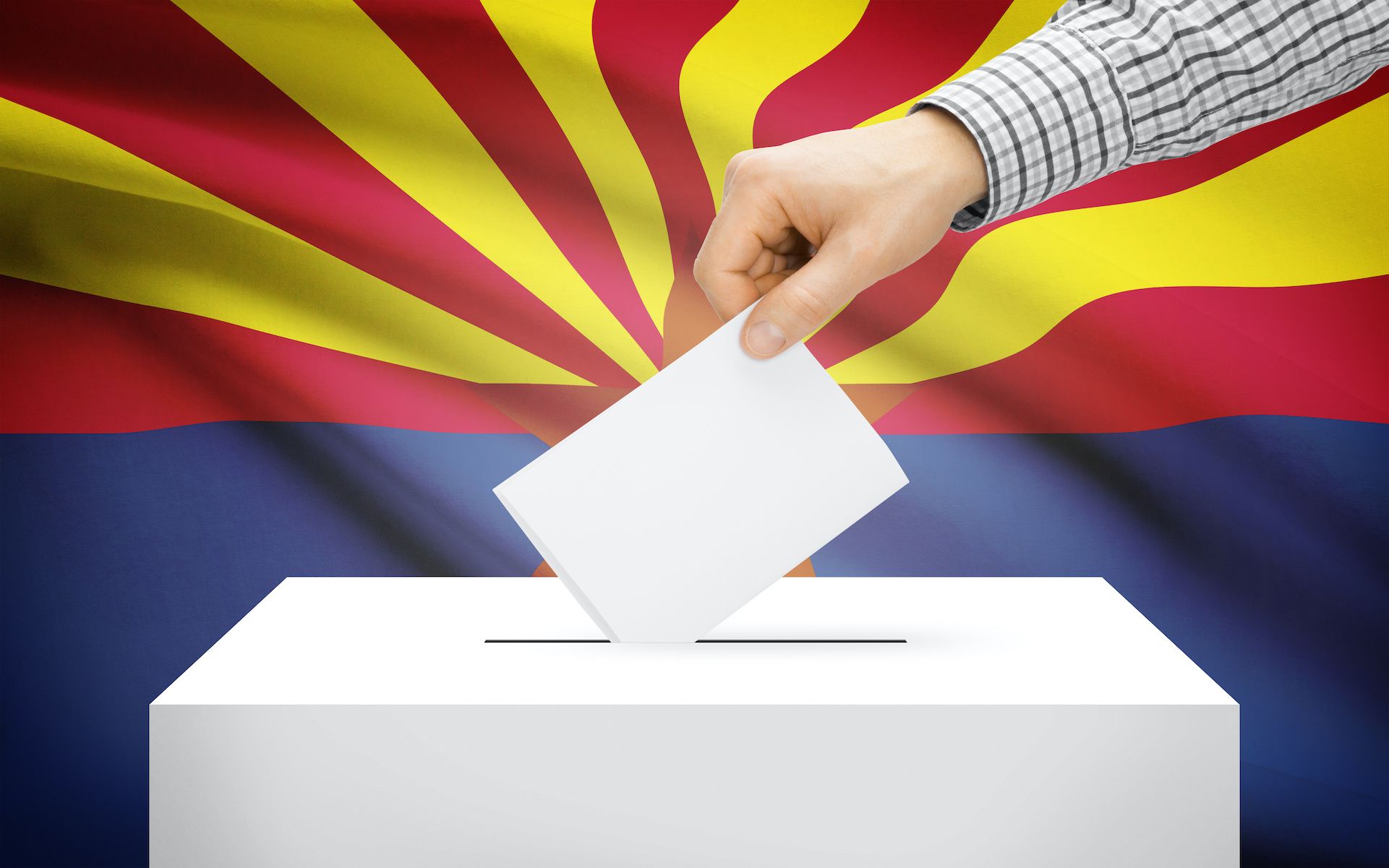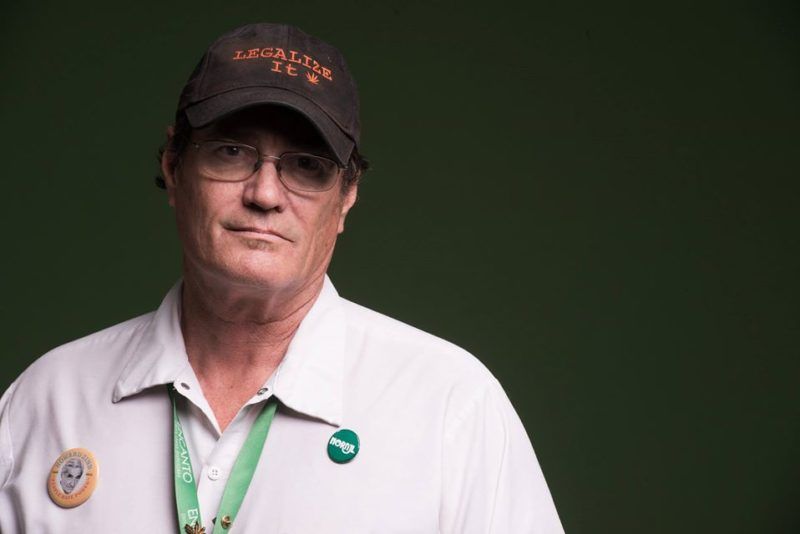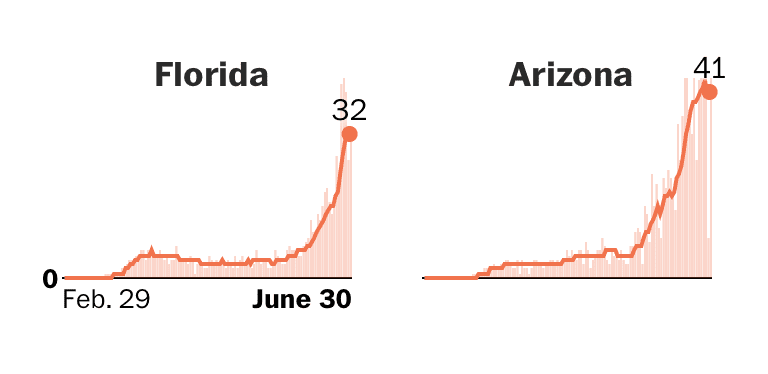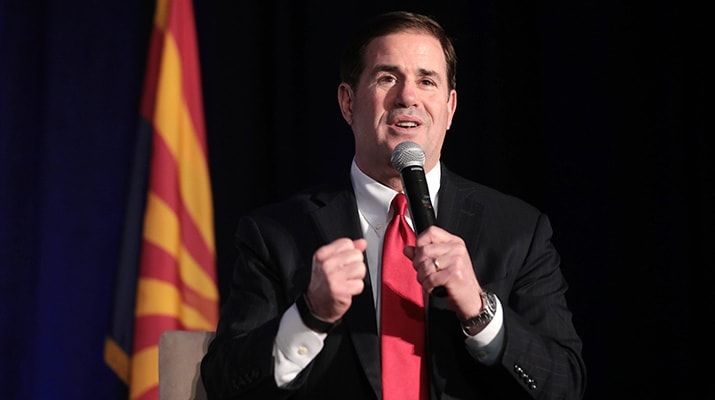Marijuanopoly: Inside the High Risk, High Reward Game of Arizona's Pot Industry
The applications were in, the photo backdrop had been unfurled, and the media was gathered in tightly at the state laboratory in Phoenix. All that was left to do for the three polo-clad Arizona Department of Health Services staff was turn on the Atom Action Bubble-Top Bingo Blower and begin.
It was August 7, 2012, and the state health department was using a $1,600 bingo machine to select numbers in a
lottery drawing. More than 400 applicants were vying for fewer than 100 spots. Cameras clicked as the staffers dumped the first set of bingo balls into the machine, locked it shut, and waited for one to fly out of the cage. Over the next few hours, the process would determine which applicants won the first rights to open a nonprofit medical marijuana dispensary in Arizona.
The drawing’s lucky winners — 91 of them in total — were fully aware they’d been awarded golden tickets. The vertically integrated certificates would grant license holders first dibs at growing, selling, and manufacturing medical marijuana products in a state that had never given patients access to pot before. For lottery winners who preferred not to get involved in a risky market that was still federally illegal, instant payouts were available. In the weeks after the lottery, several eager buyers paid $300,000 to $500,000 for control of licenses that had only cost applicants $5,000 to secure.
Seven-and-a-half years later, Arizona’s medical pot industry is roaring. It serves
220,000 patients and does
$580 million in annual sales, according to a conservative $3,500 price-per-pound estimate. The total number of dispensary licenses issued has expanded to 130. And the value of those golden tickets has continued to rise exponentially. Dispensary licenses in the state are now worth over 1,000 times more than those original $5,000 investments: $5 million, $8 million, $10 million. There are tales of $20 million deals for control of licenses.
The promise of making millions by commoditizing licenses has helped transform Arizona’s cannabis industry from a streamlined list of nonprofit providers to a tangled network of for-profit management companies that operate them — a system some say rests on questionable legal footing. It has led to scores of nasty lawsuits between dispensary board members, all of whom want their piece of the potential profits. It has convinced dispensary operators to take out loans and hemorrhage money in the hopes they’ll earn it back someday. It has also prompted public cannabis companies to use investor cash from the Canadian stock exchange to expand their footprints in Arizona and other states.
But for all the explosive growth Arizona’s pot industry has seen since 2012, experts predict the biggest earnings are still ahead. If the federal government loosens restrictions on cannabis companies, those businesses will no longer have to pay taxes connected to the
“illegal sale of drugs,” allowing for larger profit margins. More likely than federal change is an
initiative to legalize adult-use marijuana in Arizona that could pass in November. If it does, the value of a nonprofit license is expected to instantly multiply due to the fact that the law gives first privileges to open an adult-use dispensary in the state to existing medical marijuana license holders.
“I always wonder why more people don’t sell,” said Demitri Downing, founder and president of the
Marijuana Industry Trade Association of Arizona. “But I think the reason is most people who are holding onto these papers are waiting for the transitional moment when it becomes adult use and then it triples in value.”
Of course, there’s also a degree of danger current license holders must confront. If Arizona decides to legalize marijuana through a competing ballot measure (a few have been proposed this year), or changes the license structure to allow more people to grow, sell, and manufacture adult-use marijuana, those inflated license values could dissipate just as quickly.
In an industry with exorbitant entry costs, federal restrictions, complex legal structures, and a whole armory of difficult characters, not everybody can emerge a winner. It’s a high-risk, high-reward game — one that requires some measure of dice-rolling, dumb luck, willpower, and most importantly, cold hard cash.
“In a real sense, what we are seeing now is the rise of what may potentially turn into a new billionaire class,” said Gary Smith, president of the Arizona Cannabis Bar Association. “As people get stark out of cash in this industry and drop out, if you’ve still got the cash to stay in operation, you’re going to be the last man standing. You’ve won the game of
Monopoly at that point.”
The outdoor grow area at Harvest's Camp Verde marijuana cultivation facility. Harvest is the largest cannabis company in Arizona, with control of 22 dispensary licenses in the state. Jacob Tyler Dunn
Arizona’s medical marijuana industry wasn’t supposed to be like this.
When Andrew Myers, a former political operative with the Marijuana Policy Project, drafted
Arizona’s medical marijuana initiative in 2009, he wasn’t thinking of cannabis as a multimillion-dollar industry, but rather as a modest system of nonprofit dispensary organizations.
The
text of Proposition 203, which Arizona voters narrowly passed in 2010, reflected that goal, including the word “nonprofit”
more than 100 times in 34 pages.
“We thought having the facilities be nonprofit was the best way to assure that the motivation was to provide high-quality medication to patients at the lowest possible price,” Myers said. “We were not trying to create a situation where these licenses were very highly valuable assets to be traded.”
Will Humble, the director of the health department at the time medical marijuana passed, remembers drafting the state’s rules for the program based on the same sentiment. He included
a provisionthat barred the nonprofit licenses from being transferred or sold.
“I thought, well, these are supposed to be nonprofits,” Humble said. “No one should be able to sell it to anybody else, because this is medicine that they’re delivering out of the goodness of their heart.”
But many of the early lottery winners had their minds on business. The nonprofit structure was an obstacle in the way of bigger profits.
So, they found paths around it. With the help of creative lawyers, many dispensary license holders began hiring separate management companies to run their operations. That way, if they ever wanted to get out of the industry, they could sell the for-profit management company and its contracts intact, step down from the dispensary entity’s board as new members came on, and get paid handsomely for their seats through the transaction.
That routine has become common practice — a roundabout way for dispensary owners to transfer a license that’s nontransferable by law, according to Ken Sobel, an industry lawyer.
“They’re basically selling the board seats, more or less,” Sobel said. “They’re like an asset purchase.”
In the early days, according to industry leaders, an Arizona dispensary’s management company would sell for a few hundred thousand dollars. Within a few years, they were selling for millions.
John Labate, who quit his job selling advertising at
Phoenix New Times three years ago to become a pot industry consultant, said he once helped sell a management company with several attached assets for $18 million. Another time, he helped sell a management company without any assets at all — just control of the paper dispensary license — for $8.5 million, with a $300,000 bonus if Arizona enacted a recreational initiative within 22 months.
Doug Pace, a consultant who said his industry nickname is “Doug the Plug” because he connects buyers to sellers (among other dealings), said he’s heard of transactions as high as $20 million.
“There’s still a lot of people that were around originally,” Pace said. “But there’s people jumping on the green-rush bandwagon. There’s a lot of people that are eyeballing Arizona.”
Meanwhile, dispensary owners who aren’t looking to sell are using management companies to attract investment in their dispensaries — and to pay themselves a healthy cut.
“They take profit by hiring their own businesses to manage parts of the company,” said Mikel Weisser, president of Arizona’s chapter of the National Organization for the Reform of Marijuana Laws.
There’s nothing inherently wrong with hiring managers for certain tasks, or making money as a nonprofit. Some of the board members of the most well-known charities across the U.S., like Salvation Army, Goodwill, and United Way, have made millions through similar arrangements.
But traditional, IRS-registered nonprofits must issue public financial reports. Since marijuana is still illegal under federal law, Arizona’s dispensaries are state nonprofits, not national ones, and therefore only are required to send annual financial reports to the state Department of Health Services.
DHS keeps most information about its role in the state’s medical marijuana program a secret, per restrictions in the 2010 law. Smith of the Arizona Cannabis Bar Association said he doesn’t think the agency reviews the annual CPA reports at all.
“I don’t know if this is true, but there is nonetheless a widespread belief that dispensaries turn in their audits and DHS just basically checks a little box,” he said. “And then the audit goes to a file cabinet and nobody even opens the front page.”
DHS spokesman Chris Minnick told
New Times that the agency is, in fact, “auditing the audits” through a contract with a CPA firm. He said the agency couldn’t comment further on how dispensary transactions occur because it “could be seen as providing legal advice” on Arizona statutes.
But those statutes can be vague, industry experts say.
The Arizona Administrative Code dictates that nonprofit dispensaries should only pay their management companies “reasonable” compensation for the task at hand, but it’s unclear what’s reasonable, or what duties management companies should be allowed to take on for a dispensary.
For example, nobody knows whether a dispensary should legally be allowed to give its for-profit manager complete operational control over a cannabis business.
“There’s been no case yet that has popped up in the courts where that question has been asked and answered,” Smith said. “And almost everybody out there is living in simultaneous acceptance and fear of it. On the one hand, you want the question answered, because as a responsible businessperson, you’d like to know that you’re on solid footing. But on the other hand, boy, if you’re wrong, horrible news, right?”
More than 10 sources who spoke to
New Times, including lawyers, dispensary owners and industry leaders, said they have no qualms about the use of these loopholes. They said the nonprofit dispensary structure was inappropriate for the high-risk, high-capital cannabis industry from the beginning, and this was what businesses had to do to survive.
Even Humble, who wrote the rules, said he doesn’t care that dispensary owners are making money, or that they’ve found a workaround to essentially sell nontransferable entities.
He’s just frustrated, he said, that voters “approved something that said ‘nonprofit,’ and that’s not what they got.”
Harvest State Cultivation Manager Josh Barnhart stands in the clone room of the company's Camp Verde cultivation facility, where vegetative cuttings grow their first roots. Jacob Tyler Dunn
Ninety miles north of Phoenix, amid the rolling hills and mesas of the Verde River Valley, lies a glimpse of what the voters got instead.
Driving by, you might miss the nondescript building. It’s a broad, glass-ceilinged structure off State Route 260, secured by chain link and a buzzer system.
But inside is an expansive cultivation facility that belongs to the biggest marijuana provider in Arizona. It brims with 15,000 cannabis plants.
In one room the size of a walk-in closet, thousands of tiny seedlings spawn their first roots in plastic trays. Next door, in the green canopy of the 6,400-square-foot vegetation room, three Roomba vacuums zoom across the concrete floor every morning, scooping up fallen leaves and dirt. Deeper within the building, pungent, drying buds dangle from clothes hangers, waiting to be packaged into fat plastic bags.
The Camp Verde facility, owned by Harvest Health and Recreation Inc., churns out 600 pounds of dried flower every month, according to Harvest State Cultivation Manager Josh Barnhart. That’s more than any other cultivation facility in the state — an output amounting to about 4.4 percent of the 82 tons of cannabis sold last year across Arizona. And it’s just one of Harvest’s three cultivation facilities in the state.
It’s a huge operation, but one that is perhaps appropriate for a company that controls more Arizona dispensary licenses than any other operator, and which Barnhart said is “just going to get bigger.”
Harvest started as a Tempe-based, nonprofit lottery winner. CEO Steve White won two dispensary licenses in the 2012 drawing. In the years since, Harvest has grown into one of the biggest for-profit multistate cannabis operators in the United States, controlling 22 dispensary licenses in Arizona and over 100 nationwide. For the last year and a half, it has also been publicly traded on the Canadian stock exchange.
White told
New Times he started to realize his company could have nationwide potential in the cannabis industry when he watched Nevada and Illinois adopt medical marijuana programs similar to the one in Arizona. “We started thinking about how to capitalize on what was a burgeoning industry,” he said.
White also observed other companies accelerating their growth via stock transactions, and followed suit.
Boosted by millions in investor cash, Harvest has expanded its portfolio in Arizona and elsewhere. The flower at its Camp Verde cultivation facility gets sent to the company’s Scottsdale dispensary first, then disseminated out to about 10 other Harvest retail locations statewide.
Harvest and other for-profit, multistate operators like CuraLeaf, Cresco Labs, and Columbia Care have captured larger and larger shares of the Arizona cannabis market in recent years, scooping up dispensary after dispensary from operators looking for an exit. The transactions leave a trail of
press releases in their wake, some of which reveal the
exorbitant prices they paid for acquisitions.
All that growth doesn’t necessarily translate to bigger profits, though. Some operators have struggled financially. Many have seen their stock in Canada plummet in the last year. California-based MedMen, which had control of three dispensary licenses in Arizona,
recently announced it is pulling out of the state and refocusing its priorities. Harvest didn’t make a profit in 2019, White said.
But with dispensary licenses secured in large numbers across multiple states, Harvest is banking on the long game — and the payouts expected to come with eventual adult-use legalization and federal decriminalization.
The Smart and Safe Arizona Act, which Harvest has helped fund and White helped write as a former president of the Arizona Dispensaries Association, could be a huge financial boon for the company. If the measure passes, Harvest’s 22 Arizona dispensary licenses would become 22 additional adult-use licenses overnight.
“You don’t make investments unless you think there’s going to be some return,” White said.
Harvest's 6,400-square-foot vegetation room at its Camp Verde greenhouse is so big it takes three Roomba vacuums to clean it every morning. Jacob Tyler Dunn
The promise of future returns has inspired hard work in Arizona’s cannabis industry, but it has also drawn out opportunism, fraud, and greed.
Andrew Provencio, a retired senior fire captain from Anchorage, has seen this firsthand. In 2012, Provencio and Tiffany Young, a real estate agent, won a marijuana dispensary license together in the first nonprofit dispensary lottery. They started a dispensary called Uncle Herb’s in Payson.
Two years later, when Provencio left town for Thanksgiving, Young emailed him announcing her plans to remove him from the company. According to court documents, Young and her husband, an employee of the dispensary, voted in a board meeting to remove Provencio about a month later.
“I came back and they had another management company, all the locks on the doors were changed, and they told all the employees not to talk to me,” Provencio said.
Nearly all the facts around the removal were disputed in court and are still disputed today. Young claims she provided most of the financing for the dispensary, and that Provencio had given her husband some of his voting power in the company, while Provencio claims he had 80 percent of the company to Young’s 20 percent. Young said her husband was a silent partner in the dispensary from the beginning, while Provencio disagrees.
To this day, Young tells
New Times she had evidence Provencio was siphoning money out of the company and had asked to see his financials, which he declined, leading to his ouster. Provencio denies those claims, and prevailed in
the lawsuit, getting his board seat on the nonprofit back, but he said the ordeal was an eye-opener. “I trusted her completely,” he said.
A case involving Demitri Downing, president of the Marijuana Industry Trade Association, illuminates the lengths to which some will go to retain control of coveted board seats. It may also have implications for the industry at large.
Downing and his brother, Yuri, were early entrants in the medical marijuana industry in Arizona and have been board members of multiple dispensaries. A purchase they made as partners in 2015 gave them a seat on the board of a dispensary entity called Non Profit Patient Center. Later in 2015, the brothers dissolved their cannabis partnerships, and as part of their subsequent disentanglement Downing ended up with the NPPC board seat. Downing said he then went into business with his friend and former roommate Alex Lane. Their “handshake agreement,” according to Downing, meant they’d share an equal split on all joint cannabis ventures moving forward. (Lane denies he was ever technically in business with Downing.)
In fall and winter 2015, Downing went to Hawaii to try to drum up some cannabis business. During that time, he removed himself from the NPPC board seat and appointed Lane to represent them both. When Downing returned in January, he said he discovered that Lane was unable to meet the financial commitments he’d made at the outset of their partnership.
“It became clear that Alex didn’t have the money,” Downing said.
Lane had served as Downing’s private attorney during the dissolution of the brothers’ original partnership. But as Downing’s soon-to-be-partner, he was also involved in the deal itself. The conditions of that deal, according to Downing, included Lane paying off a debt to Yuri. Now, it looked like Lane couldn’t pay that debt.
In February 2016, Downing said, he was in Lane’s law office on Monroe Street in Phoenix. In an attempt to broker a solution regarding the money Lane owed his brother, Downing suggested to Lane that they give the NPPC board seat back to Yuri.
“I said to him, ‘You know, if you don’t have the money to pay my brother, let’s just give it back and move forward,’” Downing said. “He said to me, ‘The only way I will leave that board seat is in a box.’ I knew then that I was in trouble.”
A few months later, according to Downing, Lane stopped talking to him completely. He argued in a later lawsuit that Downing didn’t have a claim to any part of their shared board seat.
Alex Lane, left, and Demitri Downing, in December 2014. The two were friends and law school roommates, but since 2016, they’ve been fighting each other in a lawsuit over a dispensary board seat. Demitri Downing
“He just ghosted me,” Downing said. “That was the last communication I’ve had with Mr. Alex Lane, my friend, my roommate for more than a year in law school, the man who I introduced to his wife, who has two children because of me.”
The former friends are currently embroiled in a lawsuit in Maricopa County Superior Court over the NPPC board seat — a suit Yuri Downing initially brought against his brother and Lane’s company in order to get paid back. Lane disputes both Downing brothers’ claims, which he told
New Times are “completely false” and “baseless.”
Plenty of folks in the Arizona marijuana business are keeping an eye on the Downing case, though not out of any particular concern for the litigants. It’s drawing interest instead because the dispute may lead to legal clarification regarding the fuzzy value of dispensary board seats. In the suit, Downing argues he has lost millions of dollars by being stripped of the power and financial position that comes with a board seat. But Judge Christopher Whitten ruled recently in a partial summary judgment that board seats have no value, citing Arizona’s medical marijuana law.
Downing tells
New Times that Whitten’s ruling is “kind of inconsistent with the way the entire industry is doing business.” Many in the industry agree with Downing. As Labate, the consultant, put it, “There’s value everywhere you look. There’s value in being able to cultivate under one of these licenses, there’s value in being able to operate a retail store, there’s value surrounding it in every way.”
But others, like Duke Rodriguez, a cannabis business owner who lives in Scottsdale and owns dispensaries in New Mexico, say board seats often are interchangeable and don’t necessarily have value.
“Board members are being replaced constantly,” Rodriguez said. “One board member could have 99.9 percent of the voting rights, and the other board members are simply figureheads.” (Lane’s with Rodriguez: “Judge Whitten has accurately decided the issue,” he told
New Times.)
Another hearing in Downing’s case is set for mid-March. Smith of the Cannabis Bar Association said he predicts the suit could go all the way to the Arizona Supreme Court.
“This is me speaking as a lawyer, not as anybody knowing anything about the parties or the case,” Smith said. “Whitten’s ruling is perhaps too literal and doesn’t take into account the realities of the industry. And the realities of the industry are this: Because of the nonprofit statute on AMMA, which makes things so much more difficult for people to operate these businesses and to be able to take cash in and take cash out, the control of the board seat for the dispensaries that want to have management companies becomes very important. Because a board vote is control. And control directs how money gets spent, where it gets applied, where it gets withheld.”
Regardless of the eventual outcome, the judge’s initial ruling is a destabilizing development for Arizona’s cannabis industry. The message is clear: Industry representatives may be comfortable with the circuitous way dispensary operators are buying, selling, and profiting from control of dispensaries — but the courts might feel differently.
Harvest’s Camp Verde cultivation facility produces about 600 pounds of dried flower every month, according to Harvest State Cultivation Manager Josh Barnhart. It's one of three cultivation facilities Harvest operates.
Jacob Tyler Dunn
When you’re building an industry on a substance that has sent thousands of Arizonans to jail — and that the federal government still considers an illegal Schedule I drug — some degree of risk is unavoidable.
Arizona’s medical marijuana entrepreneurs have been forced to take gambles and deal with legal ambiguity ever since voters passed AMMA in 2010.
In early 2013 at Harvest, for example, fears of getting busted by the federal government — or by former Maricopa County Attorney and anti-pot crusader Bill Montgomery — led the company to take extra precautions. According to CEO Steve White, concern at Harvest was so acute that discussions took place about who would take the fall for the team.
“On some of our documents, I was the only one on them because I was the one who would not have a wife or kids,” White said. “We decided that it was better, that it would be less bad for me to go to jail than some of my partners.”
It wasn’t until the Obama administration issued the Cole Memorandum, saying it wouldn’t prosecute marijuana crimes in states that had legalized the substance in some form, that Harvest employees exhaled, White said.
Though cannabis is legal for medical use in Arizona and earlier worries about federal prosecution have subsided, Governor Doug Ducey has spoken out against legalization, saying he wouldn’t sign a bill for adult-use marijuana. And because the legal and political environment remains shaky — there’s still so much to gain or lose — many in the industry can be edgy and sensitive about their businesses.
At least four people confirmed by documents to be involved in multimillion-dollar dispensary sales declined to go on the record with
New Times, bound by nondisclosure agreements or afraid of the repercussions of saying they made a financial transaction involving a board seat. A site tour at a cultivation facility in Snowflake owned by the rapidly growing local cannabis company Copperstate Farms was canceled the day before it was scheduled to occur.
Everyone, it seems, is waiting to see how things go in November.
The dispensary-led Smart and Safe Arizona Act, which is likely to appear on the ballot this fall, would give the 130 current dispensary license holders and 26 “social equity” applicants the first crack at the adult-use market. But if the state someday opens the cannabis market to an unlimited number of licenses, it’ll be a different story, according to Rodriguez, the New Mexico dispensary operator based in Scottsdale.
“If they don’t get that preferred position, the value of these licenses will drop to basically no more than a library card,” Rodriguez said.
Still, investors from all backgrounds, confident (or just very hopeful) that industry predictions are correct and voters will pass the Smart and Safe Arizona Act this year, continue to jockey for position in the Arizona dispensary market — including Rodriguez.
“I would love to move into the markets that many of these operators have vacated — Yuma, Safford, Clifton,” Rodriguez said. “Many of these small Arizona towns will soon find themselves without a provider.”
Current dispensary owners in Arizona say they’re constantly getting calls to see if they want to sell.
“One to three calls per week,” said Andrew Provencio of Uncle Herb’s. “From people with capital, from foreign investors, all of them across the board have contacted us.”
Provencio has considered selling for the right deal. He said he’s lost about a million dollars on his business so far.
But if he holds out until adult-use legalization, its passage could multiply the value of his assets — and change his life forever.
“For all practical purposes,” Rodriguez said, “it’s correct to assume you may have won the lottery.”







